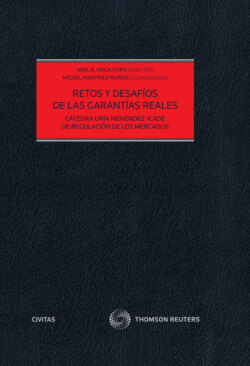Читать книгу Retos y desafíos de las garantías reales - Abel B. Veiga Copo - Страница 16
На сайте Литреса книга снята с продажи.
VI. Reservation of title versus security
ОглавлениеIn the world of security, Article 9 of the Uniform Commercial Code and systems based upon it represent the most extensive inroad into the principle that parties are free to structure their transactions in the way that best suits them. This inroad, inspired by functional considerations, assimilates a significant number of formerly title-based transactions under a single security roof. Even so, not all transactions that function akin to security are brought completely under that roof. A sale of accounts receivable and the consignment of goods on a prospective sale basis are treated as though they were security for registration and priority purposes but not when it comes to remedies in the event of the debtor’s default. Consequently, since the remedies scheme of the legislation is not imposed on the parties in these two cases, the legislation impliedly accepts that the purchaser of accounts receivable has acquired the ownership of them and that the supplier of inventory on consignment terms retains the ownership of that inventory prior to its on-sale by the prospective purchaser70. Furthermore, in the case of accounts receivable, the inveterate practice of including a recourse provision against the seller, in the event of a shortfall in the receipts from account debtors, is considered not to be inconsistent with this assertion. The recourse provision is tantamount to an express warranty as to the quality and value of the accounts. It functions, therefore, like a statutory warranty as to the satisfactory quality of goods sold in the UK Sale of Goods Act71.
In pursuing its functional agenda, apart from the question how far functionalism can be pressed, Article 9 has presented two questions that have attracted my particular attention. The first is how exactly does Article 9 override any intention of parties to a credit arrangement that their transaction should operate as a genuine conditional sale agreement. This is a question that is perhaps more conjectural than practical, in so far as Article 9 from the time of its promulgation did not prevent the parties from using the old security and quasi-security types as a matter of vocabulary. Instead, it subjected them all to the same treatment so that over quite a short period the new vocabulary was adopted and the old terminology abandoned. The second question, which flows from the assimilation of title-based quasi-security to true security so called, is whether Article 9 implicitly recognised the attraction of ownership, specifically in its priority rules and the advanced priority given to the purchase money security interest.
